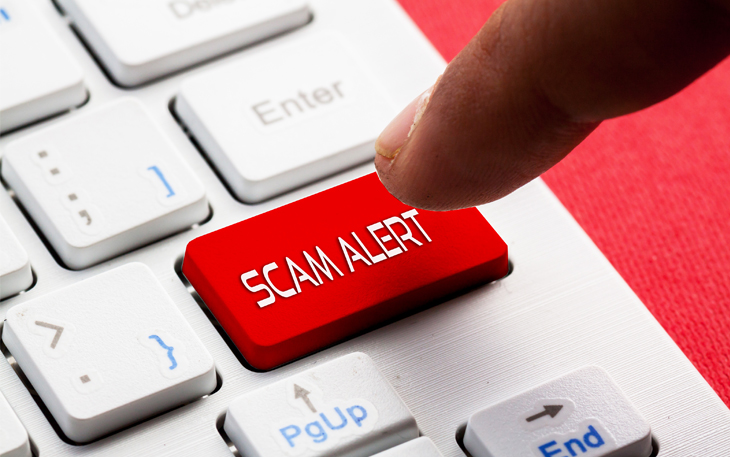How to watch for increased fraud attempts over the holidays

The holidays are here! That means extra traveling and shopping for most of us. Because there is so much increased activity, fraud tends to increase over the holidays, too. Fraud exists all the time, but the holidays fuel increased fraud activity.
A couple major scams that show up this time of year are bait checks and secret shopper scams.
Bait check scams are checks that just show up to you without any prior contact or conversations. Fraudsters send these out knowing they are bad. They hope that you will deposit it and they will get the rejected check back with your signature and account number so they can gain access to your funds.
Secret shopper scams are similar. These fraudsters are looking for the same outcome, but they are more likely to get more personal information from you. The most common way a secret shopper scam starts is by a stranger approaching you in a store and asking you to purchase something and give them a review of it. Sometimes they will ask for the product, as well. Ads have also been placed online on job seeking websites for secret shoppers. Those are scams, as well. In both situations, the fraudsters are making contact with you and will probably ask you questions about yourself. They then give you a “payroll” check for your services. Those checks are fraudulent and might get sent back to the scammer with your signature and account number on it.
While these scams are popular this time of year, they do exist year-round. Always be aware of potential fraud situations.
Here are some other scams to look out for:
- The “Tech Support” Scam: someone contacting you by phone or email pretending to be part of tech support for a technology business. They are trying to get you to grant them access to your software device so they can get any passwords or bank information saved on your device.
- The “Overpayment” Scam: someone purchasing something of yours online and paying more than asking price, then asking you to wire the difference back to them. They know the check is bad, but you have already sent them money.
- The “Government Imposter” Scam: a call, letter, email, text, or fax from someone posing as a government agency or official asking for upfront payment for something.
- The “Phishing” Scam: the scammer sends an email pretending to be a financial institution or other popular merchants asking for your information, such as bank accounts, social security number, etc.
- The “Elder Fraud” Scam: a fraudster targets someone of retirement age to try to get them to send over hard-earned savings, such as investment account funds.
- The “Debt Collection” Scam: someone posing as a law enforcement official or debt collector trying to collect money from you for a debt you don’t owe.
- The “Ransomware” Scam: usually in the form of an email with a link to follow or an attachment that will open the malicious virus onto your device. The virus holds your device hostage until the ransom has been paid. The virus can also spread to other devices on a linked network or through a storage device, such as a thumb drive.
- The “Prizes, Sweepstakes, and Free Gifts” Scam: a fraudster will ask you to pay money to receive a prize or ask you to purchase gift cards and send them the gift card numbers. This way they get free money from you.
- The “Family/Friend Imposter” Scam: a scammer will call or email you posing as a family member or friend asking for urgent financial help. They may also say they are a lawyer, doctor, or law enforcement official that is in contact with your family member or friend.
- The “Romance/Online Dating” Scam: a fraudster will create an online dating profile and will message you to build a relationship then try to get you to send them money. They will pose as a member of the military trying to get back home, someone that needs money for a doctor, or something else along those lines.
There are many scams, but being educated and using some of the following tips will help you protect yourself from potential fraud:
- If you receive a check that you weren’t expecting, do not deposit or cash it.
- If you receive an over-payment or something claiming you have a “free prize” and they are asking you to send money back to them, it’s a scam.
- Do not click on any links from email addresses you are not familiar with.
- If you receive urgent notification from a family member, don’t just send the money. Contact that family member or friend and ask them what’s going on.
- If you receive any phone calls from someone asking for money, no matter who they are posing as, hang up the phone. If the person on the phone becomes verbally aggressive, feel free to report it.
- Remember that no government agency or institution that you would owe money to would ask you for payment without a conversation, letter, or some sort of contact with you.
Most importantly, answer any questions your financial institution may ask you about checks you are trying to deposit. We are here to help protect you from fraud.
